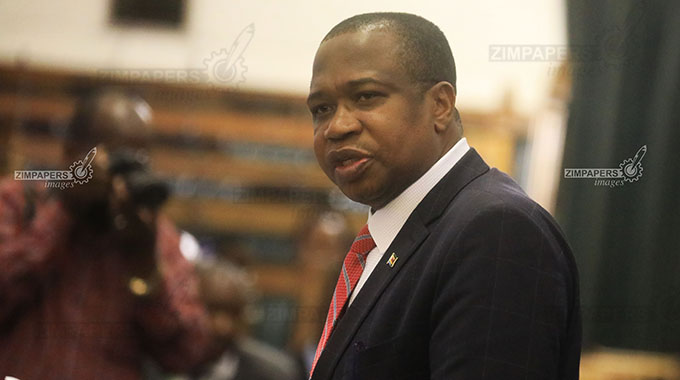Source: Monetary policy a crucial leg: Ncube | The Herald May 31, 2019
Finance and Economic Development Minister Professor Mtuli Ncube Fradreck Gorwe Business Reporter
Finance and Economic Development Minister Professor Mtuli Ncube has said the monetary policy is a vital leg in Government’s economic recovery efforts without which fiscal efforts alone are rather inadequate. Monetary policy is how a central bank governs the supply of money and interest rates in an economy in order to influence output, employment and prices. On the contrary, fiscal policy entails the use of government revenue collection and expenditure to influence a country’s economy.Responding to a question in Parliament on why as a matter of policy there are no efforts to demonetise the RTGS dollar and the bond note, and revert to dollarisation and the regime of multiple currencies, Minister Ncube argued that adoption of the US dollar crippled the crucial monetary leg by side-lining the central bank’s responsibilities, which is what the finance ministry has set out to rectify.
“What happened when the US dollar was adopted, basically as a de facto currency during the time that the Hon Member (Tendai Biti) was a minister, what he did is – he destroyed this country’s ability to conduct its own monetary policy completely. So, the central bank was taken out of all monetary policy ability and what was left was fiscal policy only,” he said.
Minister Ncube, however, believes for the country to fully discover its economic potential there is need for both the fiscal and monetary policy legs.
“So what we did on the 1st of October last year was to begin the process of restoring monetary policy as an additional tool in our tool box to deal with macro-economic issues,” Minister Ncube said.
Apart from dollarisation depriving the central bank of its actual reason for existence, that is, to control money supply in the economy and issuing currency on behalf of the government, Minister Ncube pointed to the current hurdles in transacting with the US dollar, hurdles which most people are not aware of.
He said the country has been facing challenges with transactions in US dollars where the country has “been refused supply of US dollars into the economy by certain banks that are complying with the United States sanctions”.
Dollarisation as a tool to recalibrate the hyper-inflationary macro-economic environment was employed in 2009 during the GNU when Mr Biti was the Finance Minister.
His tenure presided over the multiple currency system that, however, rendered the central bank irrelevant as it could not deploy some of its responsibilities such issuing currency on behalf of the government as well as achieve price stability among others roles.
During that dollarisation era, reports say Government was using over US$300 million annually to import hard notes that were used for transaction, that intern were externalised.
Minister Ncube is of the view that the former Minister Biti rather welcomed the green back and concentrated more on rectifying the fiscal space at the expense of moving towards an own currency.
He argued that there is need by the country to pursue its personal currency if economic recovery has to be a long-term phenomenon. It is for this reason the RTGS$ was introduced as the germinal point, he said.
“It is quite clear that we need to move towards having our own domestic unit account and the RTGS$ is the beginning of that.
“What is left now is for us to continue to fine tune the interbank market making it more efficient and also putting in place the micro institutions for making sure that monetary policy begins to work,” he said.
Through the reserve bank, Government is currently seized with fine tuning the foreign exchange market and last week announced new measures that are meant to buttress measures announced in the 2019 Monetary Policy Statement.
The new measures announced last week included the weaning off Oil Marketing Companies (OMCs) from the 1:1 exchange rate for the procurement of fuel.
“The new position is necessary to promote the efficient use of foreign exchange and to minimise and guard against incidences of arbitrage within the economy.”
The central bank also directed banks to effectively apply the willing-seller willing-buyer principle to ensure that the interbank foreign exchange market is reflective of market conditions.
“Similarly, banks should discontinue twinning arrangements for their customers as this undermines the efficient operation of the interbank foreign exchange market.”
The post Monetary policy a crucial leg: Ncube appeared first on Zimbabwe Situation.
